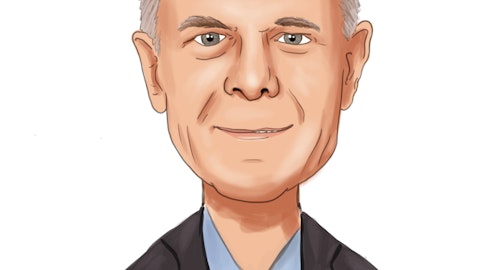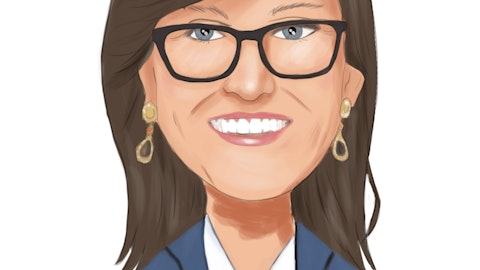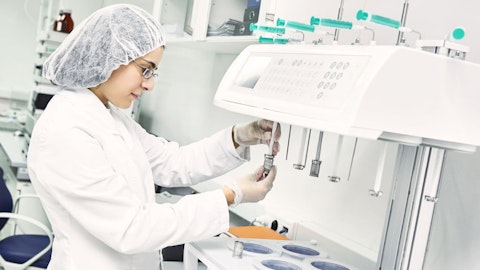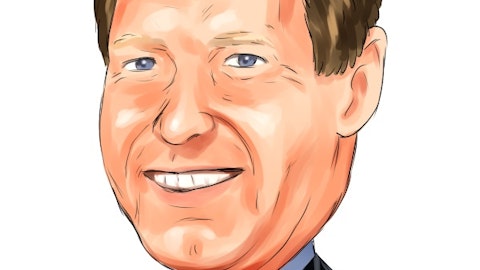€ªUnidentified Analyst: Hi y’all. This is AJ for Chris Howerton. Just one additional question here, for the ENVISION trial, what gives you confidence that a single arm design is sufficient for approval? And would you consider or could you get like SPA agreement with the FDA?
Liz Barrett: So Mark, do you want to talk about the feedback we got from the FDA and I can also add any color?
Mark Schoenberg: Thank you, the confidence has to do with our interactions with the FDA in presenting our Phase 2 data and long conversations with them about the role we believe UGN-102 can play in neurologic practice. So on the strength of the Phase 2 data, as well as our interactions with the agency, we believe and they have provided reassurance in writing that the design of the ENVISION trial would support approval of UGN-102 and that the decision will be based upon the totality of the data we present to them.
Liz Barrett: Yes, I think the only other thing, I’ll add is and two things about SPA, I mean, the agency doesn’t do SPAs very often any longer. And so we would’ve had to have done that before. So no, we don’t have a special protocol assessment with the FDA. But we do have our minutes from our meeting that says that a single arm study can be the basis for an approval. And they’ve made it very clear, we’ve shared this before that we’ll go to an ODAC. And frankly, we’re very happy to go to ODAC. We believe we’ll win in an ODAC, we know that physicians want access to this medicine. And so we’re very comfortable and confident with that. And as Mark mentioned, what they say is it’s got to be clinically meaningful and it’s based on the totality of the data, which is not different than what they would expect to say.
We would expect them to say. But the good news is, is that what we have to everybody has to keep in mind here is there is not another therapy to compare UGN-102 to, the only other treatment is surgery. And there has never been in any €“ across any therapeutic area, a study that had to be done to get a therapeutic approved that where they had to demonstrate how it did versus surgery. It was always looked at as an option to surgery. And so, that was part of the argument, we had with the FDA and the discussions around it and they agreed. And add that to the complexity of trying to make a comparison to a surgery. And that’s why ultimately the FDA agreed, they just weren’t comfortable, frankly, we asked for approval on our Phase 2 study. They just weren’t comfortable with 65 patients.
So they’re like, we need a much larger patient population. And we agreed with them on the 220 patients. So I hope that helps.
ۻUnidentified Analyst: Very helpful. Thank you.
Operator: And thank you. And I am showing no further questions. I would now like to turn the call back over to Liz Barrett for closing remarks.
Liz Barrett: Thank you, operator. And again, as always, we really appreciate your interest in our company. We’re very excited about what’s happening with JELMYTO, we’re very excited about the fact that this year we’ll actually be able to share data on a significant number of patients for UGN-102, as everybody knows, that’s been a highly anticipated medicine for us. And we appreciate everything and look forward to sort of sharing more as the year goes on. So let us know if you have any additional questions, always happy to jump on the phone. So operator, you can now disconnect. Thanks to everyone.
Operator: This concludes today’s conference call. Thank you for participating. You may now disconnect.
Follow Urogen Pharma Ltd. (NASDAQ:URGN)
Follow Urogen Pharma Ltd. (NASDAQ:URGN)
Receive real-time insider trading and news alerts



